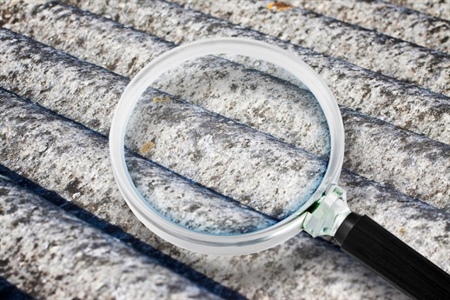Invisible Issues That Can Be Exposed During a Home Inspection

An inspection is imperative for a fair and transparent sale, whether buying or selling a new or old home. Upon looking at the property yourself, you may find issues easily. However, there are dangerous issues that lie beneath the untrained eye. These issues can affect the sale of a home as well.
Let’s look at some invisible issues a home inspector can come across! Remember, as the buyer, home inspections can affect you differently.
Radon
Radon is a colorless, odorless, naturally occurring gas that can cause lung cancer. It forms in the ground and rises to the surface. In nature, radon will rise to the surface and disperse harmlessly in the air. However, radon can make its way into properties, trapping it inside and making it potentially deadly. In fact, the EPA estimates that 21,000 people a year die from radon-related cancer.
A home inspector will conduct a radon test during the inspection to determine if there are dangerous radon levels in the home.
As the Seller
You must schedule radon mitigation before selling the home if you are the seller. You have to hire a qualified radon mitigation professional to install a system that will reduce radon levels.
As the Buyer
As the buyer, you will need to negotiate with the seller to handle radon mitigation before you complete the home purchase. Whoever has to pay for and hire the mitigation should be written out in the negotiations.
Foundation Issues
Foundations are the longest-lasting part of a house.
Foundation issues may not be completely “invisible” to spot, but signs can be pretty subtle. An inspector will look at the foundation itself and check for cracks in the wall near doors and window trims.
As the Seller
Be sure to disclose all foundation issues to the interested buyers. It is illegal to withhold that information if you are aware of the issue. You may be pressed into having the problem repaired to sell the home.
As the Buyer
If a seller discloses foundation issues or they are found during an inspection, you may have trouble getting a mortgage loan approved. You can negotiate with the seller to try to have them fix the issue before you purchase the home.
Lead Paint
Lead is a highly poisonous metal when consumed by humans. We used lead for many tools and items for centuries without knowing the negative health impacts.
One of the most common lead-based products was exterior paint. If your home was built before 1978, chances are your house still might have lead paint on its siding.
A home inspector will likely use a handheld X-ray machine to determine if your house has any lead paint. If the X-ray fails to get through the paint layers, your home still has lead paint clinging to the sides.
As the Seller
If you are already aware of lead paint in the home, you are responsible for disclosing that information to potential buyers. You also must give the buyers EPA information and allow them ten days to conduct their own lead paint inspection. Failing to do so can result in hefty fines.
The law, however, does not require you to remove the lead paint.
As the Buyer
Do your due diligence and have a professional conduct a lead paint inspection in the home. Based on your contingencies, you may be able to back out of a deal if lead paint is present. Otherwise, you are taking on the responsibility of handling the lead paint after the home purchase.
Asbestos
Asbestos is a naturally occurring mineral that is great for insulating homes but is toxic and cancer-causing when exposed to humans. A home inspector will likely find asbestos exposure while looking through your attic, behind your drywall, in old vinyl floor tiles, or popcorn ceilings.
It takes a lot of repeated exposure for asbestos to impact your health negatively, but if you find it in your home, it’s best to remove the source as soon as possible.
As the Seller
Like other issues we’ve discussed here, if you are aware of asbestos in a home, you must disclose it to potential buyers. You are not legally obligated to fix the problem, however. You can expect that the price of the home may drop because of the cost of asbestos removal.
As the Buyer
If you decide to purchase a home with asbestos, it is in your best interest to remove it or have it covered or enclosed if possible. You can try to negotiate removal costs, but there is no guarantee that the seller will agree, as they do not have to remove it.
Contact DMC Home Inspection to Find Hidden Issues
No matter your reason for getting a home inspection in the Twin Cities, DMC’s 150 points of thorough inspection will find issues hiding behind the surface. Schedule your inspection online today, or give us a call at 612-310-1692!